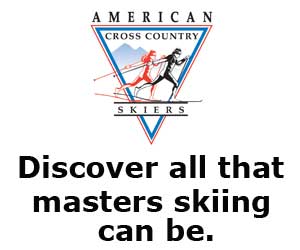
University of Nevada Ski Team 1936-????
Help save the team
Thu, Aug 20, 2009 - By August Teague
 Who are we?
Who are we?
In 1936 with the help of Wayne Poulson the first University of Nevada ski team was formed. Only one year later members of the team were awarded varsity letters for representing the university in competition. Two years after distributing the University’s first letters, the University of Nevada claimed its first and only National Championship. This was before skiing was recognized by the NCAA, and was a compilation and comparison of times and results of the East and West Intercollegiate Championship Ski Meets. By 1947 skiing was a major sport at the university, placing athletes on the US ski team and hosting a citywide winter carnival and parade, for its home race. The ski team had reached such popularity that in 1954 when the NCAA decided to add skiing, Nevada was selected as the host for its championship. In that same year Pat Myers won the Downhill and became the first NCAA downhill skiing champion. At the time athletes were required to compete in four disciplines: jumping, downhill, slalom, and Nordic (then only diagonal) skiing.
By the 50’s, skiing in Reno and the surrounding area had grown so much in popularity that Wayne Poulson, by then the founder of the University of Nevada ski team and co-founder of Squaw Valley resort and ski area, was able to convince the International Olympic Committee to bring the1960 winter Olympics to Squaw Valley. From 1959-1969 the University of Nevada finished in the top ten at the NCAA skiing championships six times.
Skiing continued to grow at the University of Nevada until the late 70’s, when a combination of the economy and the title nine requirements of the time forced the University of Nevada to drop skiing as an official sport. This was during a time when many institutions were forced to cut back on skiing programs, including the University of Wyoming and the University of Denver. Because skiing had become more and more specialized and there was a need to show gender equity, college skiing made a change to how it would score its championships. It would use four events, two alpine and two Nordic, so athletes could focus on one sport rather than three. But what is unique about NCAA ski racing is that it is one of the only sports that combines male and female participation in the championship to determine one NCAA champion institution. The male and female athletes are on the same team working and training together with the same facilities and coaches to achieve one goal! This makes it truly gender equitable.
Through the 80’s and early 90’s the University of Nevada ski team crept along as a club sport, often without coaches and much support from the university, until 1994 when a group of alumni and boosters came together to breathe the ski team back to life. Since 1994, the University of Nevada ski team has finished in the top ten at NCAA skiing championships seven times, had 35 All America’s and has won four individual titles.
Currently the team is made up of about 30 male and female student athletes from Nevada, California, Utah, Colorado, Vermont, Oregon, Minnesota, Montana, and six other countries. The team competes throughout the west, racing in races from the US National championships to the local night series. The goal of the team is to be in the top four at the NCAA skiing championships in Steamboat, Colorado this year. In addition to racing well, it is an expectation for each athlete on the team to have a GPA of at least 3.0 (NCAA requires an individual GPA of 2.0). The team has achieved an average minimum GPA every year since it was brought back in 1994. In fact, most years the average team GPA is above 3.5.
Although it has not been a specific goal of the team, giving back to the community has been a priority, and the team is asked by the coaching staff to complete a minimum of 480 community service hours each year. Broken down it comes out to about 8 hours an athlete per semester.
Last year when I hired our current alpine coach, Evan Weiss, we sat down and create our plan and goals for the ski team. On top of that list was winning a NCAA skiing championship for the university of Nevada by the year 2012. We felt that in order to do that we needed to recruit the best local skiers, based on the thought process that if we could not get the best local skiers to come to our school it would be hard to convince the best skier from somewhere else to come. We established that we needed to fully develop each skier, physically and mentally. We also felt it was a requirement to offer consistent coaching and support. We believed upon writing this plan that if we did these five things we could put the University of Nevada ski team in the positions to win.
What does this mean/what’s next?
This means that next year the University of Nevada will continue to support skiing on the level of the coaches’ salaries and tuition waivers only. All the operating cost and any scholarships for room/board/books will need to be privately funded. For the 2009/2010 ski team, we will need to raise $34,000 in order to operate. This is at a level below where we were a year ago, and will require some creative ideas in how to change our plan to still meet our team goals, but is at a level where we believe we can still be competitive.
For the 2010/2011 ski team, the University of Nevada has said it will not fund the ski program. In other wards the university of Nevada ski team will be cut, unless it can show that it can be 100% self-funded. It is our hope that the community and boosters can show the fundraising potential to cover operating costs and coaches’ salaries. Given current income levels the ski team would need to solicit $107,180 per year to operate at the new level. It is also the hope that the university would make a compromise and allow the team use of the tuition waivers, for athletic scholarship.
Why help?
There are lots of reasons to support the University of Nevada ski team. Some of them may be more personal than others, but here are a few; if you know of some other reasons that I have not listed but you feel should be, please let me know so they too can be included:
- The University of Nevada ski team is the only NCAA program in the Sierra Nevada Region.
- It was one of the first NCAA ski programs in the country and provides an opportunity for many of the local young athletes.
- There are 22 ski areas within a two-hour drive of the Reno/Tahoe airport, each of which has a ski team. Each of these teams are trying to have their best skiers make a bigger/better club/team, eventually landing the lucky few on the US ski team and/or in the Olympics. Each of these athletes and their family are spending hundreds of thousands of dollars to help them reach their goals. The University of Nevada ski team provides one more opportunity at a very high level for these athletes.
- Help our youth get and education, while continuing healthy, active lifestyles.
- So our student athletes (skiers) can be in a position to give back one day.
- Tax write-offs!!!
- To be part of a winning team!
How can you help?
There are two ways we need your help: money, and contacts. The first is the most obvious. We need to raise a lot of money in order to continue to survive. What may not be so obvious is that we have a lot of hard-good and equipment costs, so if you do not have money you may have something that is on our wish list that you would be willing to donate. If you cannot donate we would greatly appreciate three contacts of people who may be able to.
Thank you sincerely for your support.
August Teague
Director/Nordic Coach
E-Mail: [email protected]
Phone: 775.682.6343
